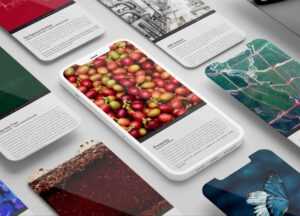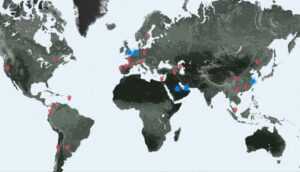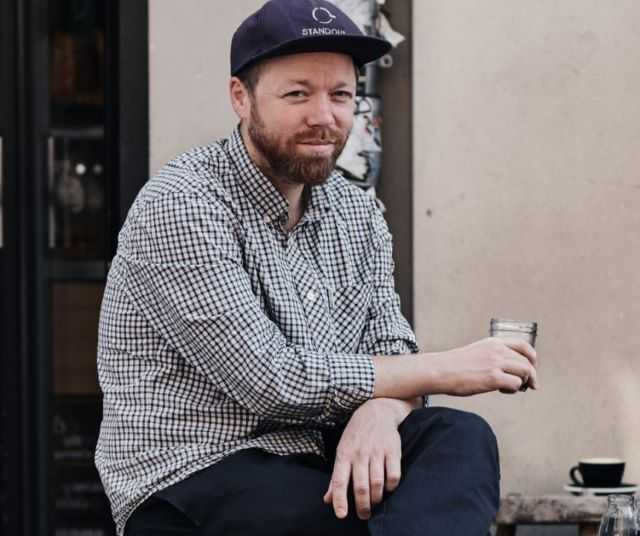MILAN – UK Brewers Cup Champion, WCE Sensory Judge, co-founder of Prufrock Coffee, and now the dean of studies at Barista Hustle: this curriculum vitae is only part of all that could be said about Jeremy Challender, one of the names that have helped shape and still shape the international specialty scene. Between training, research and practice in the field, this leading figure of the community has told his story on these pages, also explaining what one of his latest projects, Barista Hustle, consists of.
From Australia to London and then back to Australia, Challender lived, surfed, the legendary Third Wave of the specialty: what have you seen from one country to another over the years?
“That’s a big question so I’m going to give you a big answer for this one. By the late Nineties, Specialty had just arrived in Sydney — in 1998, Toby Smith (the founder of Toby’s Estate) started selling single estate coffee which he roasted in his Mum’s King’s Cross garage. (I was in a Jazz band with Toby’s head Barista, Matthew Clare at the time — that’s how I got into coffee). But there were some unusual quirks to the Sydney scene in the late nineties. For instance, my local Newtown roastery sold all the traditional French Roast, Italian Roast coffees but unusually they had a Brazilian Maragogype. This was kind of a first for Sydney: it was coffee sold not just sold by country of origin like any other commodity, but also by variety — it was a suggestion of what was coming and there were plenty of pre specialty markers like this in Sydney in the late 90s.
– Challender continues – It wasn’t until I started as a barista at Monmouth Coffee in London in 2002 that I ever heard the names of coffee farmers being conveyed to customers by baristas. By the middle of the noughties, pioneering cafes like Fernandez and Wells had established themselves but they seemed to excite the interest of their customers more for their machinery (they had UK’s first Synesso) than for the provenance of their beans. Flat White in Soho was another example, where an exotic beverage type signalled the third wave had arrived more loudly than the provenance of the coffee.
So, I think things actually became quite a lot more interesting for everyone — baristas, and customers alike — in the next decade, where provenance, equipment, and barista-technique all came into phase. In 2013, I remember visiting former Prufrocker, Petra Strelecka’s new cafe venture in Brno in the Czech Republic, called Industra Coffee. (She later became the three-time Czech Brewers Cup Champion.) She had a T3 and an EK on the bar, all the coffees on the menu were sold not simply by country of origin, but by variety. And far more importantly, they all had the producer’s name alongside them too. And of course, the coffee was prepared with the spectacular precision you might expect to see from a molecular gastronomist. But rather than a Michelin Star over the door, this was instead a reasonably priced, unpretentious, friendly cafe, two miles out of town, in a disused ice cream factory.
I was there giving a talk about the history of the third wave — and it occurred to me that Europe hadn’t really had the same waves as America — certainly not three of them. Instead, Czech baristas had smoothly transitioned from traditional ‘Italian’ preparation methods to using specialty coffee roasted by local micro roasters on superb equipment without much else changing — I find that very charming and it allows the provenance of the coffee to take centre stage.”
Challender were the king of the training centre at the iconic Prufrock: how many champions and enthusiasts have passed through there and what did you experience together when training was still almost visionary – I think of other pioneers like Edy Piro or Gwilym Davies -?
“There was a really nice time in London when you could fit pretty much everyone working in specialty coffee in the Square Mile railway arch, or the Prufrock Basement. In 2009 when Gwilym and I organised the Disloyalty card in East London, we struggled to find eight cafes to go on the card. It’s a credit to the advance of London coffee culture that you now need an event the size of the London Coffee Festival to fit everyone in.”
And today with Barista Hustle Challender continues his tireless activity in the sector: can you tell us about this project, how it is structured, its objectives and how it is evolving?
Challender: “The thing that makes Barista Hustle different from other coffee education projects is that it’s much more affordable. We are like the Netflix of coffee — instead of just selling expensive stand-alone courses, learners subscribe for 15 dollars a month with no upfront fees to access the World’s largest knowledgebase of online courses, apps, videos, and calculators.”

Training, more and more like many other fields, is moving to digital: what do you think, in a sector where practice is an essential part of learning?
“It’s impossible, even for the best coffee trainers like Gwilym or Edy, to pass on all that they know about coffee in a one-day course. They probably couldn’t do that in a five year-long course. That’s exactly where online learning has become an essential part of becoming a top coffee professional: Barista Hustle makes every detail available to learners at the click of a button — when they need to know something, it’s right there waiting for them.
That means learners don’t have to stress about forgetting details about coffee science; they can just drop back into a lesson when they need to find out a complex detail about coffee that they might have forgotten. You no longer need a trainer beside you, to get the answer you require. Moreover, BH provides a level of detail that platforms like Youtube are unable to obtain because we are a subscription service — our members are paying us to produce the best, most detailed information for them. Rather than creating videos that get the most views for an advertiser.
We are not trying to cover the low hanging fruit — like what’s the best hand grinder to buy? Instead we’re trying to cover literally everything about barista skills and coffee production. We have been producing online education non-stop for over eight years now, and that means, we have had time to address nearly every aspect of coffee production.
Of course, there is no substitute for an in-person training experience with a top professional like Gwilym or Edy. That’s why in 2019, we introduced a classroom-based service called BH Coaching. We currently have 50 coaches dotted around the globe. BH Coaching brings online learning into the classroom with the help of a diverse and outstanding line up of accredited Coaches. Our Baseline Tests are challenging practical exams that give talented coffee professionals a chance to prove they can work efficiently and produce outstanding beverage quality.”

In your opinion, is the specialty scene almost standardising, perhaps flattening out, in those countries where they are no longer a novelty?
“In places like Melbourne or London, there are plenty of ‘third wave’ businesses which have expanded into multiple locations and some of these seem to exemplify second wave business practises more than their first principles. A lot of famous Melbourne coffee companies that once had brew bars have since changed ownership, or changed philosophies and now put a lot more emphasis on efficiency than they once did.
So yes, it’s a lot harder to find a pour-over in Melbourne than it once was. But that said, my local cafe called Tortoise Espresso (thus named because they won’t be rushed) has an extensive menu of ultra-specialty coffees which they keep vacuum sealed in a deep freeze located next to the bar. This approach is really interesting to me because it mitigates the risk of stocking outstanding coffees — you don’t have to worry about them staling. I’m seeing frozen menus a lot more — it’s opening up menus in a similar way to how Coravins have helped to revolutionise the service of fine wines allowing Sommeliers to tap into their cellared wines in a way they wouldn’t have dared a few years back. There’s room for a lot more specialty coffee in every European city. Take Rome for example — Faro still stands alone there as the torch bearers of Specialty coffee.”
Where is the industry heading towards? In Australia, how can specialty coffee shops stand out now? How many are there nowadays?
“There’s no doubt that Melbournians absolutely love going out for coffee. According to Australia’s Tourism agency there are over 2000 cafes in Melbourne. Not every one of these cafes sells coffee that grades above 80 points. However, the average cafe standard in Melbourne is interstellar compared to the average coffee quality I have encountered in most big European cities. Also, because there were so many early proponents of specialty coffee in Melbourne, the founders of Melbourne’s coffee scene still have a loud voice, and in many cases, those early third wave micro-roasteries have expanded to huge nationwide wholesale operations. This makes an obvious dent in the profits of the large international players that were omnipresent in the early 1990s.”
Is there still something you feel you have to learn, discover, taste?
Challender concludes: “As a writer and researcher at Barista Hustle, the job forces a student mentality upon you. For example, when we sat down to write our online course entitled Processing, we soon discovered that the pace of innovation that producers are currently exhibiting in countries like Colombia and Panama is so rapid that it’s hard to keep up. We are constantly updating and revising our learning material as coffee producers, scientists, and baristas push the boundaries of coffee ever outwards.”

















 CAPS: the new proprietary system using capsules made of 85% recycled aluminium
CAPS: the new proprietary system using capsules made of 85% recycled aluminium